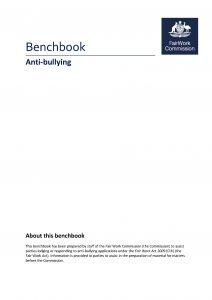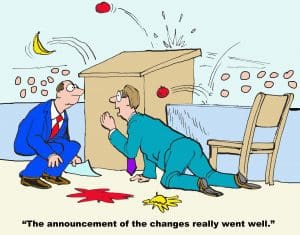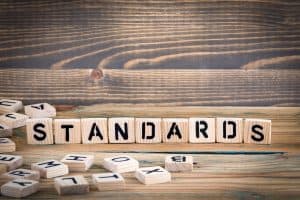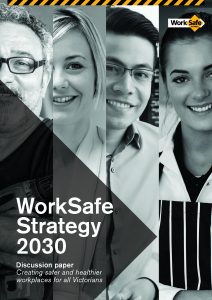 Australia’s Fair Work Commission (FWC) has released the latest (March 2018) edition of its Anti-Bullying Benchbook. This is a regularly published document that offers background to its decisions and definitions used by the FWC through case studies and plain-English explanations. The Benchbook clearly states that any occupational health and safety (OHS) issues are to be directed to the relevant OHS regulator but the book provides useful insight to a more (and limited) industrial relations approach to workplace bullying.
Australia’s Fair Work Commission (FWC) has released the latest (March 2018) edition of its Anti-Bullying Benchbook. This is a regularly published document that offers background to its decisions and definitions used by the FWC through case studies and plain-English explanations. The Benchbook clearly states that any occupational health and safety (OHS) issues are to be directed to the relevant OHS regulator but the book provides useful insight to a more (and limited) industrial relations approach to workplace bullying.
A major attraction of the

 This is an edited version of my presentation to delegates at the inaugural
This is an edited version of my presentation to delegates at the inaugural 

 The publication date for the first truly international Standard on occupational health and safety (OHS) management systems,
The publication date for the first truly international Standard on occupational health and safety (OHS) management systems,  Being
Being 